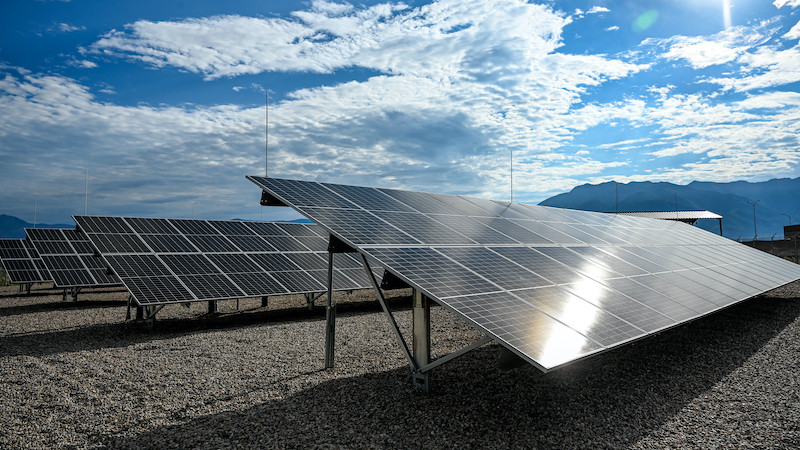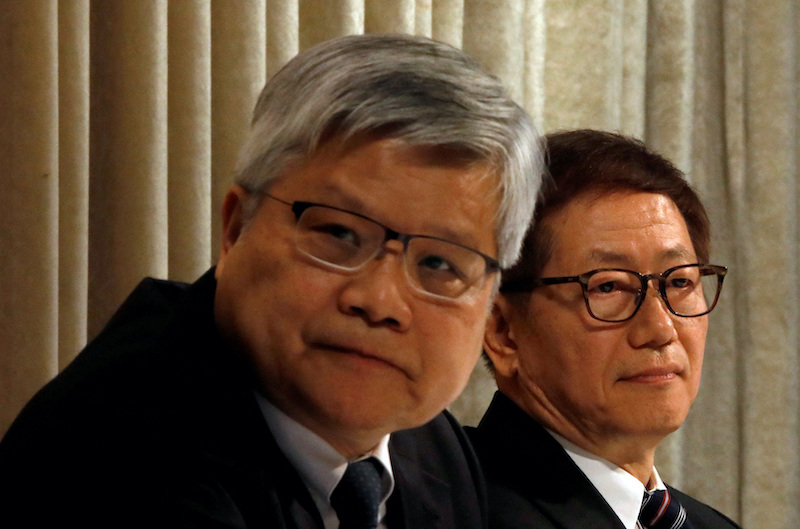A senior US Defence official said this week the United States “cannot surrender” clean energy technology to Beijing because China will use it to increase its geostrategic power.
China has invested in a whole range of clean energy technologies but it had done this partly for geostrategic power, Deputy Assistant Secretary of Defence for Environment and Energy Resilience Richard Kidd said at the GovExec 2022 Climate Summit.
“The United States cannot surrender that lead to any other country and expect to remain a preeminent global power,” he added.
Kidd’s remarks appear to clash with earlier good intentions expressed by the Biden administration about cooperating with Beijing on the fight against global warming.
In November 2021, the US and China – the world’s two biggest emitters of carbon dioxide – unveiled a deal to ramp up cooperation tackling climate change, including by reducing methane emissions, protecting forests and phasing out coal.
A framework agreement was announced by US climate envoy John Kerry and his Chinese counterpart Xie Zhenhua at the COP26 climate conference in Scotland, was billed by both as way to tip the summit towards success.
“Every step matters right now, and we have a long journey ahead of us,” Kerry said at the time.
Recently, however, China said it was suspending any such cooperation with the US because Lower House Speaker Nancy Pelosi had strained ties by visiting Taiwan.
Biggest Clean Energy Investor
China is the world’s biggest user of coal and the world’s biggest polluter. But it has a better record in terms of investment in clean energy than the US over the past seven years, Grid news reported, with three times higher capacity for wind and solar power last year.
Its solar-panel market dominance has reached an 80% share in all key manufacturing stages, according to the International Energy Agency, which warned last month that the world needs to diversify its sources of clean energy.
The IEA report and its carefully worded remarks may have jolted in Beijing into warning local solar panel manufacturers on Thursday against hoarding, creating monopolies and other illegal practices.
China announced in June that a third of its power would come from clean energy by 2025 in a “new five-year plan”.
Keeping Pace
Meanwhile, Kidd, the deputy assistant secretary of defence, vowed that his department would maintain investment in clean energy technologies to keep pace with China, saying that would support US troops in competitive operations while also curb greenhouse gas emissions.
“We’re playing a range of war games now where energy and climate are factored in,” he said. “We will not be able to move energy around the battlefield the way we’ve been able to in the past.”
“There’s still a gap between where we want to be and the technology that we currently have,” he added. “So there’s going to have to be tremendous additional investment in technology.”
- By Alfie Habershon and Jim Pollard
NOTE: The photo on this report was changed on August 26, 2022.
Read more:
US Reassessing China Tariffs After Harsh Taiwan Response
China Planning Agency Aims For 33% Renewable Power by 2025
China Warns Solar Panel Makers on Hoarding, Monopolies
























